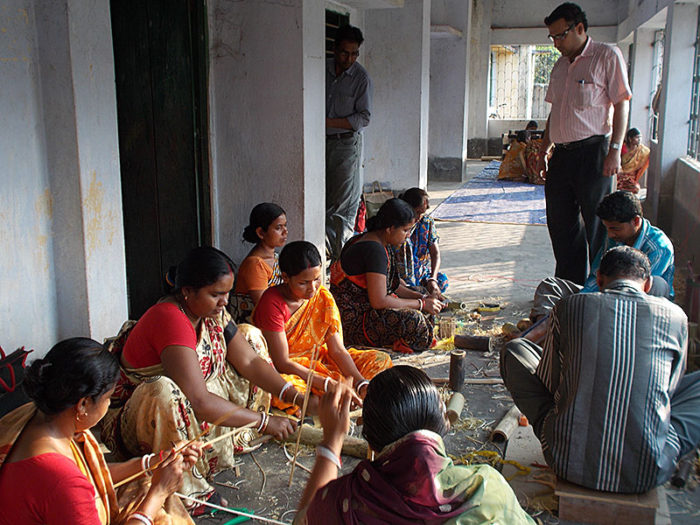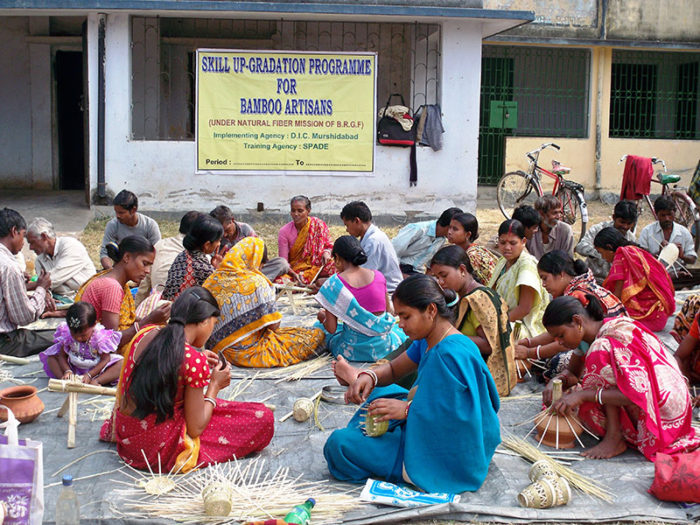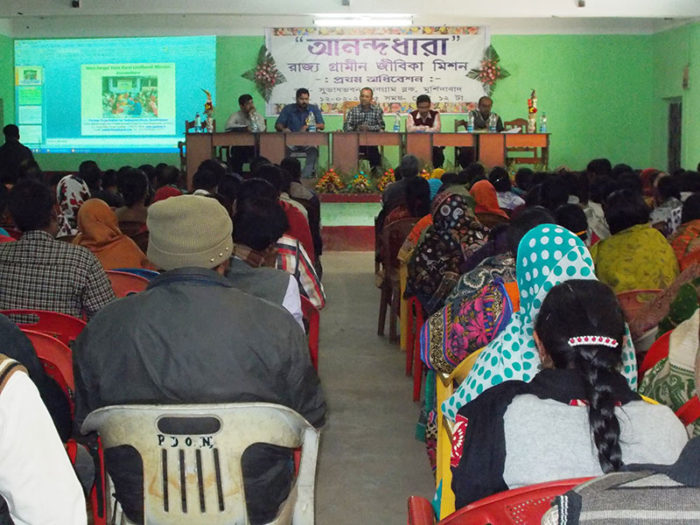Institution Building – SPADE’s View
“Power is not of an woman or man. Wealth does not center in the person of the wealthy. Celebrity is not inherent in any personality. To be celebrated, to be wealthy, to have power requires access to major institutions.”
Institutions are stable, valued, recurring patterns of behaviour. As structures or mechanisms of social order, they govern the behaviour of a set of individuals within a given community. Institutions are identified with a social purpose, transcending individuals and intentions by mediating the rules that govern living behaviour.
People may deliberately create individual, formal organizations commonly identified as “institutions”— but the development and function of institutions in society in general may be regarded as an instance of emergence. Institutions arise, develop and function in a pattern of social self-organization beyond conscious intentions of the individuals involved.
Institutions are social arenas where unique strategies are pursued for inducing and maintaining values which satisfy societal needs. Organizations are formal, social mechanisms which facilitate constant transmission of values. Leaders are key actors in these arenas embodying the values. The process of institution building is the energizing of people so that not only they internalize values that transcend narrow self-interests but they also become infused with a sense of mission in their total life. What distinguish an economic organization from an institutional organization is the intensity and the depth with which individual members of an institutional organization hold the core values which seem to suffuse their total being.
The three guiding strategies to build institutions are:
(1) Networking strategy or creating interacting and overlapping clusters internally as well as externally both to produce a vision for the institution and to translate the vision into actions in terms of research programmes and projects.
(2) Trusting strategy or creating a climate of trust providing freedom of action to the individuals, ensuring autonomy and emphasizing horizontal control.
(3) Caring strategy or creating a climate of caring by the leader remaining approachable through open channels of communication and emphasizing the role of administration as a support system to the core tasks of the institution.
The above video ‘SUBHAR KOTHA’ or ‘শুভার কথা’ has been made to convey a message about Institution Building and elimination of oppression of women.
Institution Building – SPADE’s major pursuit
From 2000 onwards, SPADE focussed on institution building for the community and community based organizations (CBO) across the eastern part of India and during last sixteen years enriched itself with expertise human resources who are equipped for Self Help Group Management and Community Based Disaster Risk Management. At present the team have acquired high capacity for providing field facilitation, social and community mobilization, establishing Self help groups, village organization, upasangha, sangha and cooperatives. Gradually SPADE proliferated its activities from Kolkata to five other districts and now has field offices at Dakshin Dinajpur, Murshidabad, Nadia, Purulia and Purba Medinipur.
At present SPADE is executing Model Partnership Blocks programme of West Bengal State Rural Livelihood Mission (WBSRLM – Anandadhara – A society under Panchayat and Rural Development Department, Government of West Bengal) to achieve the objectives of National Rural Livelihoods Mission under District Mission Management Units of Hili in Dakshin Dinajpur; Nabagram, Domkal and Hariharpara in Murshidabad; Shantipur and Ranaghat I in Nadia districts.
SPADE is executing Promotion of 1000 Women SHGs in Left Wing Extremist dominated district – Purulia and 500 SHGs in Dakshin Dinajpur District, a project of NABARD (National Bank for Agriculture and Rural Development).
SPADE and Institution Building
From 2000 onwards, SPADE focussed on institution building for the community and community-based organizations (CBO) across the eastern part of India and during the last sixteen years enriched itself with expert human resources who are equipped for Self Help Group Management and Community Based Disaster Risk Management. At present, the team has acquired a high capacity for providing field facilitation, social and community mobilization, establishing Self-help groups, village organization, upasangha, sangha, and cooperatives. Gradually SPADE proliferated its activities from Kolkata to five other districts and now has field offices at Dakshin Dinajpur, Murshidabad, Nadia, Purulia, and Purba Medinipur.








